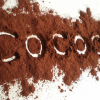As for the cancer concern: there is a plausible risk, and it's very difficult to guess exactly how likely it is. NGF has been shown to have an effect on lung [
1] [
2], prostate [
3] [
4] [
5], pancreatic [
6] [
7] [
8] [
9] [
10], breast [
11] [
12] [
13] [
14] and other [
15] cancer. The potential enhancement of survival, proliferation and/or invasiveness of cancer cells seems to be mediated primarily through the high-affinity NGF receptor TrkA [
16] [
17] [
18], though the low-affinity receptor P75 may also play a role [12] [13]. Cancer therapies which reduce NGF or block its receptors are being studied [
19] [
20] [
21]. But on the other hand, NGF has been shown to have a beneficial effect in some models, too [
22] [
23], though this doesn't obviate the risk posed.
So yeah, this is potentially worrying. Increased angiogenesis and survival means that very small cancers which might otherwise be killed off easily by the body could grow to be a larger concern. Enhanced proliferation means that existing cancer clusters might grow at an accelerated rate.
However, whether this is a
practical concern when taking Lion's Mane is another matter. Cancer cells release increased levels of NGF on their own [6], and the overall enhancing effect
may have more to do with increased expression of NGF receptors in cancer cells than the amount of NGF present [16]. Another factor to consider is the aforementioned site of LM's action. Its effect on NGF secretion has been demonstrated in human neural cells [
24], and NGF can't cross the BBB, so it's unknown whether this will have a significant effect elsewhere in the body. I'd guess that it does have the potential, but as a matter of practical concern may have no effect given the cancer cell's already-increased NGF secretion.
But to put this in context, anything from a high-protein diet to the amount of B vitamins found in most common supplements to the far-upstream neural mechanisms of piracetam could feed cancer in a similar way. The best defense is still to try hard not to generate cancer in the first place. But Lion's Mane may not be the best thing to take constantly for the rest of your life, given this risk. Like most things we discuss here, it should be considered as a risk/benefit ratio. If you do take it, looking into supplements which might fight/prevent cancer is definitely a good idea.
Here I establish the Potential for Nicotine to increase NGF in a cell line
Mechanisms of nicotine mediated communication between NGF-differentiated PC12 and HEL cells.
This article does not support nicotine as a pro-NGF compound. The only mention of NGF is that it was used to prepare (differentiate) the PC12 cells they used.
Nicotine has been shown to increase both NGF mRNA and actual protein expression in several models [
25] [
26] [
27], and also failed to do so [
28]. It also increases expression of the NGF receptors [26] [27] [28] [
29] [
30] [
31], which is another mechanism for cancer promotion. When added to the potentially
carcinogenic metabolites, nicotine is probably not the best model to use for determining the effects of NGF on cancer.
Also, can you be more specific about which NGF-related substances have been shown to decrease life span? I could find no studies about direct effects of NGF on longevity, and I don't think there have been any lifespan studies using any of the nootropics we discuss here. The only relevant chemical that comes to mind is nicotine, and there are lots of confounding variables at play there.
I was under the impression that Hericum was broken down in the brain directley to BDNF, and is known to stimulate a response greater then 5x then normal.
If you take the eye drop straight version I'd imagian before any of that NGF turns into BDNGF it would need to pass through all of the body increasing the cancer risk. I would even jump to say that taking Lion's Mane would protect against Cancer because of it's anti inflammatory mechnisms.
I don't think LM has been shown to have any effect on BDNF. It induces cells to secrete their own NGF. Neither BDNF nor the active molecules in LM break down into NGF.
LM is touted as having anti-cancer properties by a lot of vendors. I think this might be based mostly on traditional medicine. There hasn't been a lot of scientific study, apart from a few papers showing some potentially helpful mechanisms like NK cells [
32]. This is another factor in the equation, but it's questionable whether one should count on a substance to kill off enhanced cancer cells somewhere down the line...
Edited by chrono, 30 November 2011 - 07:25 PM.
































































